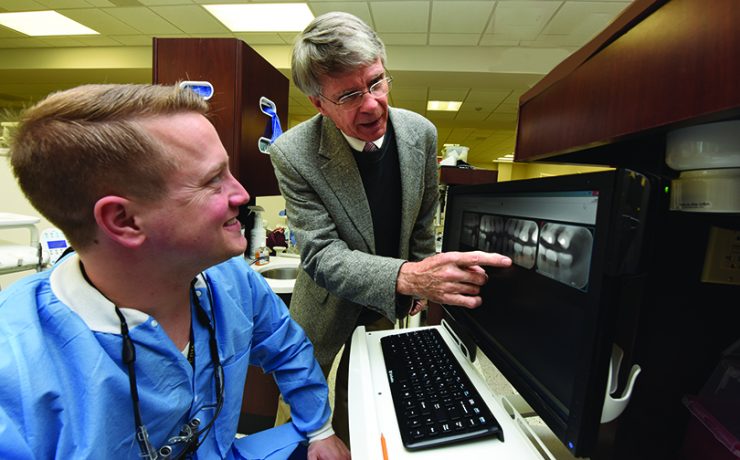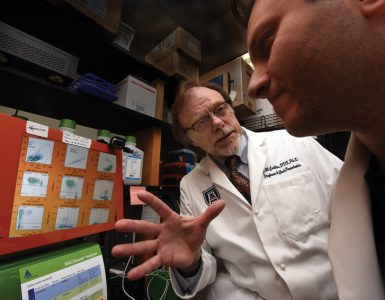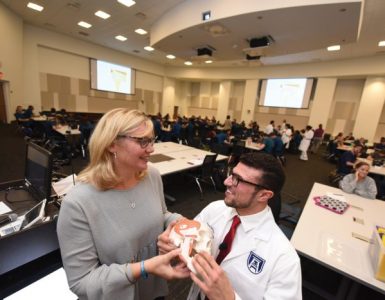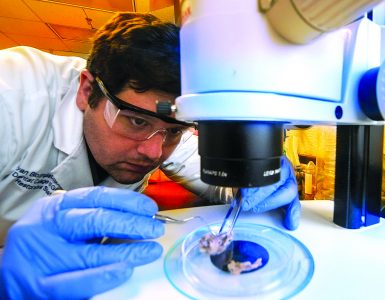Dr. Fred Rueggeberg, a professor in the Department of Restorative Services with a joint appointment in the Graduate School, earned his dental degree from Emory University in 1979 and a master’s degree in dental materials from the University of Michigan. He joined the faculty in 1987 to develop and refine biomaterials used in dentistry. His advice:
>Stay flexible.
“I love to tinker and wanted a career that combined hand skills and mind skills. I thought about engineering, but the economy was bad, so I decided on dental school. But I lived in Delaware, which doesn’t have a dental school, so I had the disadvantage of applying to schools as an out-of-state applicant. I didn’t get in the first year, but I tried again a year later and was accepted to Emory.”
>Find your best fit.
“The technical part of dentistry always came easily to me. The people skills were more challenging. But I pushed myself. The people I most respect are older clinicians who wake up every morning still excited to go to work and do it all over again. I enjoyed private practice, but I wanted the best fit possible. I decided to focus on research, so I earned a master’s degree in biomaterials and joined the DCG faculty in 1987 to head the light-curing/polymer investigation section.”
>Carpe diem:
“I work behind the scenes to help solve clinicians’ problems. I have multiple patents and recently received one incorporating particles in fillings that ensure they harden and adhere uniformly during light-curing. As excited as some people are about clinical dentistry, that’s how excited I get about solving technical problems.”
>Think critically:
“I advise students to realize their jobs will be doing surgery on patients who are awake and conversant. If they aren’t committed to their patients, they can’t fake it. I also stress critical thinking: Don’t always check your phone for a solution; think through a problem and figure out the solution for yourself.”
>Challenge, don’t intimidate.
“When I joined the faculty, I was advised to submit my master’s thesis for publication. I asked a colleague to proof it and gave him a red pen for edits, but I didn’t think he’d need it. When I asked if he’d finished it, he said, ‘You got another red pen?’ He told me I was writing to impress, not inform. I’ve never forgotten that. Teaching is the most important thing I do, and I never want to intimidate my students. I want to challenge them.”









